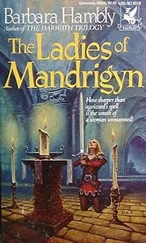Barbara Hambly - 04 Sold Down the River
Здесь есть возможность читать онлайн «Barbara Hambly - 04 Sold Down the River» весь текст электронной книги совершенно бесплатно (целиком полную версию без сокращений). В некоторых случаях можно слушать аудио, скачать через торрент в формате fb2 и присутствует краткое содержание. Жанр: mystery, на английском языке. Описание произведения, (предисловие) а так же отзывы посетителей доступны на портале библиотеки ЛибКат.
- Название:04 Sold Down the River
- Автор:
- Жанр:
- Год:неизвестен
- ISBN:нет данных
- Рейтинг книги:4 / 5. Голосов: 1
-
Избранное:Добавить в избранное
- Отзывы:
-
Ваша оценка:
- 80
- 1
- 2
- 3
- 4
- 5
04 Sold Down the River: краткое содержание, описание и аннотация
Предлагаем к чтению аннотацию, описание, краткое содержание или предисловие (зависит от того, что написал сам автор книги «04 Sold Down the River»). Если вы не нашли необходимую информацию о книге — напишите в комментариях, мы постараемся отыскать её.
04 Sold Down the River — читать онлайн бесплатно полную книгу (весь текст) целиком
Ниже представлен текст книги, разбитый по страницам. Система сохранения места последней прочитанной страницы, позволяет с удобством читать онлайн бесплатно книгу «04 Sold Down the River», без необходимости каждый раз заново искать на чём Вы остановились. Поставьте закладку, и сможете в любой момент перейти на страницу, на которой закончили чтение.
Интервал:
Закладка:
Rose laughed at that, a joyous whoop at the absurdity of humankind, and January shook his head. He had found rooms of his own that day, in what had been the gar?onni?re of a neat cottage on Rue Ursulines: slightly more than he could afford, but the woman who owned the house, a former plac?e like his mother, would allow him to use her parlor for piano lessons three days a week. "What did your mother say?"
"Nothing. She thinks I'm a fool for leaving, and points out-quite rightly-that I'll be paying twice as much for the same accommodations and no meals thrown in. I suspect she's going to rent out my old room to someone else for three times what I was paying her. She doesn't understand that what I'm paying for is freedom."
"Of course she doesn't," said Rose. They passed the lights of the Cafe du Venise, and for a moment the music of Hannibal's fiddle flowed through the illuminated doorway to infuse the mist around them. "Because of course you're no more free of her than you were before." "I may not be free," he said, "but at least I have choice. And that's something." She smiled. "With your mother, that's a great deal."
"But I'm angry, Rose." Their steps turned along Front Street, toward Rue des Victoires where her rooms were. To their right the levee spread out in the cobalt luminance of the winter night, torches blazing like golden footlights, outlining some incomprehensible spectacle on a stage. The smells of the eating-houses swirled around them-oysters frying, onions, syrup-meeting the stinks of salt and fish and tar and engine smoke from the wharves like a tidal river, and from somewhere close by a woman sang, "One cup of coffee, just five cents Make you smile the livelong day..."
"The way the people in the quarters were treated-the way I was treated-I can't forget it. I thought I'd left it behind when I was a child and I found I hadn't. I'd just buried it, deep. And now it's come up out of its grave like a dead man's haunt, and it speaks to me all the time." He shook his head, as a hobbled animal does when tormented by summer flies. "I see Quashie tied and beaten for no better reason than that he loved Jeanette. I see Kiki given in marriage to a man she hated just because Fourchet wanted Reuben to do his job well. I know there are good masters and bad masters and that the poor in the big cities are treated just the same, and yet I walk down the streets now and I see white men-strangers-and I hate them, I feel rage at them, killing rage, and this isn't a good way to feel. I know, because I saw what it did to Simon Fourchet. And I don't know what to do."
He spoke desperately, words he had not voiced to anyone, and as he spoke them he felt anger all over again at Simon Fourchet for having changed him, put this in his heart. Anger and helplessness and burning shame.
"Have you spoken of this to your confessor?" Torchlight flashed across her spectacle lenses as she turned her head, made a golden halo of the white tignon she wore. He knew that Rose was not a religious woman-a logical Deist, whose God was mathematics-but in her voice he heard her understanding of his own faith.
"He told me to pray. To pick out one white face-and one black face-from all the strangers I see, each day, and to burn a candle, and say a prayer, for those two every day. But I'm still angry. I think I may be angry for a long time."
"Are you sorry you went?" she asked. "Sorry you lived among these people? Sorry you remembered?" He said, "No."
"It's an injury," she said. "A wound. There will be a scar, and the scar will hurt-mine certainly do-but wounds do heal." Her long slim hand, cold within its glove, slipped into his.
Shortly after the New Year, January was passing a blacksmith's yard on the Rue St.-Pierre, coming home late from rehearsals with an opera company visiting from Italy, which would open in the Carnival season. The mist lay thick in the wet streets, and his head was filled with arias and duets and the precise placement of half-notes, but out of the dark he heard a man's single voice lifted in wailing, gentle song:
"They carry them down to the river, They throw them in the stream. They carry them down to the river, They throw them in the stream."
He stepped into the torchlit yard, and saw the smithy brimming over with the warmth of lamps. A small broad-shouldered man bent over an anvil, like a bee in the center of a rose of crimson light, drawing out an iron bar flat for some future project, the forge-light edging his cropped gray hair with gold. From the yard gate January added his voice to the song: 'Papa, I'm afraid I'm dying, Papa, I'm gonna die..."
Mohammed looked up, and his teeth glinted in a smile. "Ben!" He laid his hammer aside, and his hand was rough and hard as the forged iron as it clasped January's. "I'm glad to see you well." "And I you."
"It is still Ben, isn't it?" asked the smith. He'd grown a beard, which with the broken nose and the scars left by Duffy's beating altered the look of his face. "I go by the name of Moses these days. Moses LePas. M'sieu Theroux, that's the owner here, speaks of taking me on as a partner." "He couldn't get a better," said January. "Man, it's good to see you. Are any of the others in town, do you know? Are they well?"
"Just about everyone's well," the blacksmith said. "I heard from Here only last week-he and Trinette are in New York. Ajax has his own gang of stevedores on the waterfront there, and Bumper and Nero are in school. They come home and teach Hope what they've learned, to read and to figure. Marquis-you remember how bad he was burned-he's got a little farm on Cane River, and a Chickasaw wife. Agamemnon's up there, too, working in a tavern; old M'am Pennydip cooks for him and keeps house. Quashie and Jeanette are expecting a child, over in Mobile."
"And Kiki?" asked January, and the look Mohammed gave him, sidelong, told him what the blacksmith guessed.
"I've heard no word of her," he answered. "Mostly everyone else, though. Not many are here in town, of course, for fear of running into Michie Esteban, but there's some. They all ask after you, you know."
And what did they feel? January wondered. Did they feel that hideous, despairing sense that whatever they did, it would accomplish nothing? Did they feel hate every time they saw a white face, or wake in the night with memories that would be part of them forever? But it would be forever, he thought. And it was a part of them, and a part of him as well, a blood-link that joined them. At that realization some of his anger shifted, and sorrow and understanding entered to ease a little of its pain. Joy warmed him at the,thought of all those friends, as if he'd received word of a family long lost.
"Tell them I'm well," he said, smiling then. "Tell them I'm fine." He filled the blacksmith in on what he'd heard of Esteban's activities, and those of Madame Fourchet. "Not bad," he said, "for one who had to start all over again."
"No." Mohammed grinned. "No, that's a woman who'll go far. It was a good thing that you did, you know," he went on. "I always meant to tell you at the time. So many men say to Allah, ' Show me your will and I'll do it,' and then when Allah says, 'Take this staff and go save that flock of sheep from wolves,' they say, ' Show me your other will.' We weren't your sheep. You didn't know us at all. I wanted to tell you how proud your father would have been of you." January had been about to speak, to deprecate what he had done, but he found he could not. He stood with his breath indrawn, looking at the griot's face in the lamplight, unable to say a word.
Mohammed went on, "You are Jumah's son, aren't you?"
Jumah.
Up until that moment January had never recalled his father's name. It had been buried under the pain of losing him, under the terrors of being taken away from the only home he had known; under the fear of his mother being taken from him as well. But now the name came back to him, not as a new thing, but as something always there. He said, "Yes. Yes, Jumah was my father."
Читать дальшеИнтервал:
Закладка:
Похожие книги на «04 Sold Down the River»
Представляем Вашему вниманию похожие книги на «04 Sold Down the River» списком для выбора. Мы отобрали схожую по названию и смыслу литературу в надежде предоставить читателям больше вариантов отыскать новые, интересные, ещё непрочитанные произведения.
Обсуждение, отзывы о книге «04 Sold Down the River» и просто собственные мнения читателей. Оставьте ваши комментарии, напишите, что Вы думаете о произведении, его смысле или главных героях. Укажите что конкретно понравилось, а что нет, и почему Вы так считаете.







